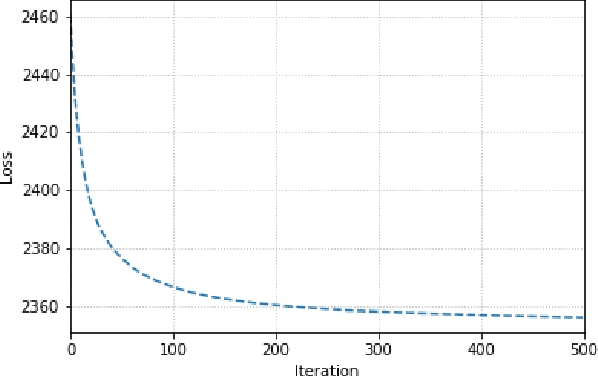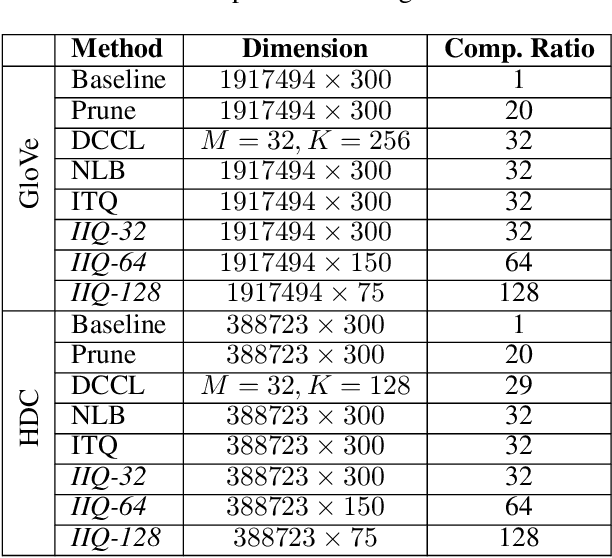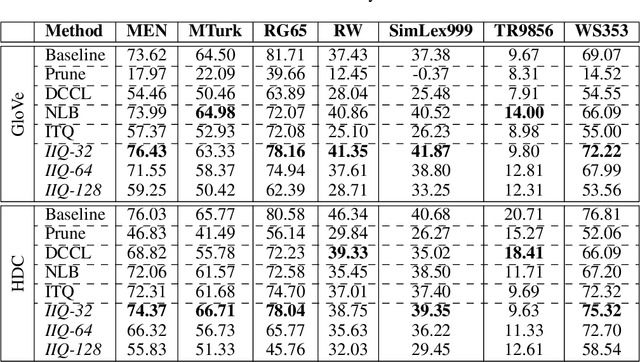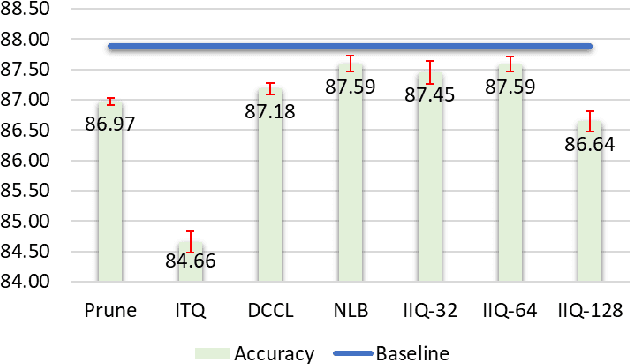Embedding Compression with Isotropic Iterative Quantization
Paper and Code
Jan 23, 2020



Continuous representation of words is a standard component in deep learning-based NLP models. However, representing a large vocabulary requires significant memory, which can cause problems, particularly on resource-constrained platforms. Therefore, in this paper we propose an isotropic iterative quantization (IIQ) approach for compressing embedding vectors into binary ones, leveraging the iterative quantization technique well established for image retrieval, while satisfying the desired isotropic property of PMI based models. Experiments with pre-trained embeddings (i.e., GloVe and HDC) demonstrate a more than thirty-fold compression ratio with comparable and sometimes even improved performance over the original real-valued embedding vectors.
 Add to Chrome
Add to Chrome Add to Firefox
Add to Firefox Add to Edge
Add to Edge